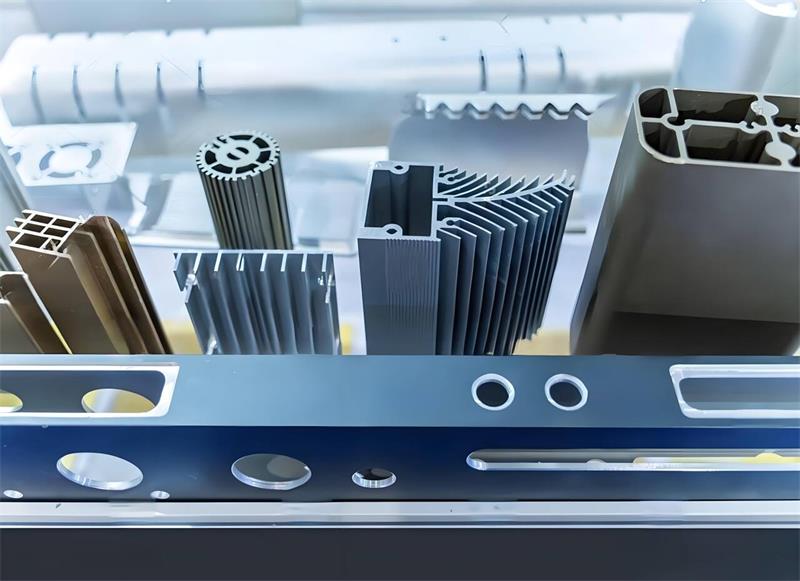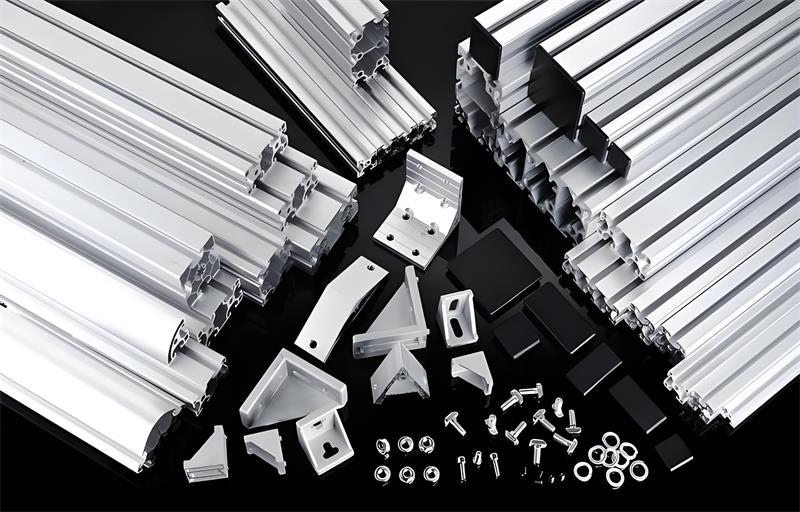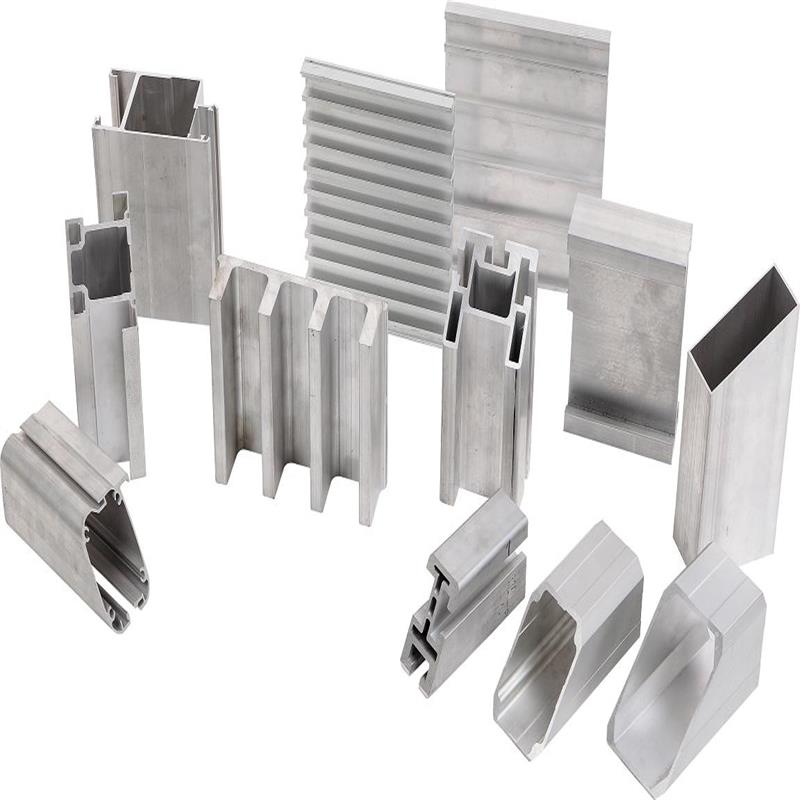Is Aluminum Safe for Humans

I. Introduction
II. The Ubiquity of Aluminum
III. Chemical Properties of Aluminum
IV. Routes of Exposure
V. Potential Health Effects
VI. Safety Regulations and Standards
VII. Mitigating Risks
VIII. Conclusion
Introduction
In our modern lives, aluminum is everywhere. From the aluminum profiles that form the sturdy frames of our windows and doors, like the sleek aluminium casement windows, to the extruded aluminium components in our kitchens, such as those in the aluminium kitchen section, and the customized aluminum parts in various industrial applications, aluminum's presence is undeniable. It's used in everything from the cars we drive to the packaging of our food. However, this widespread use has led to an important question: is aluminum safe for humans? This query has sparked extensive research and debate among scientists, health experts, and the general public alike.
Aluminum, a silvery-white metal, is the third most abundant element in the Earth's crust. Its popularity in manufacturing and construction is due to its unique properties. It's lightweight, yet strong, highly malleable, a good conductor of heat and electricity, and has excellent corrosion resistance. These characteristics make it an ideal choice for an array of products, from aerospace components to everyday household items. But as we continue to incorporate aluminum into more aspects of our lives, understanding its potential impact on our health becomes increasingly crucial.
Some people worry that the aluminum we're exposed to daily - through food, water, air, or contact with aluminum products - could be harmful. Concerns range from potential links to serious health conditions like Alzheimer's disease to more immediate effects on the body's systems. On the other hand, the aluminum industry and many studies suggest that, in normal circumstances, the amount of aluminum we're exposed to is not a cause for alarm. So, where does the truth lie? In this blog post, we'll dig deep into the science, research, and real - world evidence to answer the question: Is aluminum safe for humans?
The Ubiquity of Aluminum in Our Lives
Aluminum Profiles in Construction
In the construction industry, aluminum profiles are the building blocks of modern architecture. Their lightweight yet robust nature makes them ideal for a plethora of applications. Aluminum is commonly used in the creation of aluminium casement windows, which are renowned for their durability, weather resistance, and sleek appearance. These windows not only enhance the aesthetic appeal of a building but also provide excellent insulation, helping to regulate indoor temperatures.
In addition to windows, aluminum profiles are extensively used in curtain walls. Curtain walls made from aluminum offer a combination of strength and design flexibility. They can be customized to fit various architectural styles, from the minimalist facades of contemporary skyscrapers to the more ornate designs of traditional buildings. The use of aluminum in curtain walls also contributes to energy efficiency, as it helps to reduce heat transfer.
Moreover, aluminum profiles serve as crucial structural supports. They are used in the construction of beams, columns, and frames, providing stability and strength to buildings. Their corrosion - resistant properties make them suitable for both indoor and outdoor applications, ensuring that buildings maintain their structural integrity over time.
Extrusion Aluminium in Daily Products
Extrusion aluminium has found its way into countless daily products, making our lives more convenient and comfortable. In the kitchen, many utensils and cookware are made from aluminum due to its excellent heat - conducting properties. Pots, pans, and baking sheets made of aluminum heat up quickly and evenly, allowing for efficient cooking. For example, aluminum baking sheets are popular among home bakers as they help to bake cookies and cakes to a perfect golden brown.
In the world of electronics, extrusion aluminium is used in the manufacturing of device casings. Smartphones, laptops, and tablets often feature aluminum casings that not only protect the internal components but also dissipate heat effectively. The lightweight nature of aluminum makes these devices more portable, while its durability ensures they can withstand the rigors of daily use.
Aluminium Casement Windows and Kitchen Sections
Aluminium casement windows are a staple in modern construction. They are prized for their air - tight seal, which improves energy efficiency by preventing drafts. The smooth operation of casement windows, thanks to their well - designed hinges and locking mechanisms, also adds to their appeal. Additionally, they come in a variety of colors and finishes, allowing homeowners to choose the one that best complements their home's exterior.
In the kitchen, aluminium kitchen sections are becoming increasingly popular. Aluminum is used in the construction of kitchen cabinets, countertops, and sinks. Aluminum kitchen cabinets are lightweight, yet strong enough to hold heavy cookware and utensils. Countertops made of aluminum are heat - resistant and easy to clean, making them a practical choice for busy kitchens. Aluminum sinks are also a popular option due to their durability and corrosion resistance.
Safety Regulations and Standards
International Standards
International standards play a crucial role in ensuring the safe use of aluminum in various applications. In the realm of food - contact materials, the European Food Safety Authority (EFSA) has set strict limits on the amount of aluminum that can migrate from food - contact surfaces into food. These limits are designed to protect consumers from potential overexposure to aluminum. For example, the EFSA has determined specific migration limits for different types of food - contact articles, such as cookware, utensils, and packaging. This ensures that when we use aluminum - made kitchenware or consume food packaged in aluminum containers, the amount of aluminum that could potentially enter our bodies is within a safe range.
In the United States, the Food and Drug Administration (FDA) also has comprehensive regulations regarding aluminum in food - contact materials. The FDA evaluates the safety of aluminum - based products used in food processing, storage, and packaging. It requires that these products meet certain safety criteria to ensure that they do not pose a risk to public health.
When it comes to drinking water, the World Health Organization (WHO) has established a guideline value for aluminum in drinking water. This value is based on extensive research into the potential health effects of aluminum ingestion through water. The WHO's guideline helps countries around the world set their own national standards for aluminum in drinking water, aiming to protect the health of their populations. These international standards are not only important for safeguarding public health but also for facilitating international trade. They provide a common framework that manufacturers and producers must adhere to, ensuring that aluminum - containing products are safe for consumers globally.
Industry - Specific Regulations
Different industries have their own set of regulations regarding the use of aluminum, tailored to the specific risks and requirements of each sector. In the construction industry, building codes and standards govern the use of aluminum profiles. For example, in the installation of aluminium casement windows, there are regulations regarding the strength, durability, and corrosion resistance of the aluminum frames. These regulations ensure that the windows can withstand environmental factors such as wind, rain, and temperature changes over an extended period. They also cover aspects like the safety of the window's locking mechanisms and the proper installation techniques to prevent accidents.
In the food and beverage industry, in addition to the general food - contact material regulations, there are specific rules for the use of aluminum in food processing equipment. Aluminum used in machinery that comes into direct contact with food, such as conveyors or mixing bowls, must meet strict hygiene and safety standards. These standards often include requirements for easy cleaning and sanitization to prevent the build - up of bacteria or other contaminants.
The aerospace industry has some of the most stringent regulations for aluminum use. Given the critical nature of aircraft components, the aluminum used in aerospace applications must meet high - strength - to - weight ratio requirements while also being able to withstand extreme conditions. Aerospace - grade aluminum undergoes rigorous testing and quality control processes to ensure its safety and reliability. Regulations cover everything from the composition of the aluminum alloy to the manufacturing processes and the final inspection of components. Industry - specific regulations are essential as they address the unique challenges and potential risks associated with aluminum use in each sector, ensuring that products are safe, reliable, and fit for their intended purpose.
Mitigating Risks Associated with Aluminum Exposure
Choosing Safe Aluminum Products
When it comes to choosing aluminum products, several factors should be taken into consideration to ensure safety. First and foremost, pay close attention to product labels. For food - contact aluminum products, such as cookware and utensils, the label should clearly indicate that it is suitable for food contact. Additionally, look for information about the aluminum alloy used. Some alloys are specifically designed to be more stable and less likely to leach aluminum into food. For example, certain high - quality aluminum cookware is made from alloys that have been treated to reduce the risk of aluminum migration.
The surface finish of the aluminum product is also crucial. Anodized aluminum, for instance, has a thicker oxide layer on its surface, which makes it more resistant to corrosion and reduces the likelihood of aluminum leaching. Powder - coated aluminum products offer a similar level of protection. These finishes not only enhance the durability of the product but also provide an extra barrier between the aluminum and the environment or substances it comes into contact with. When purchasing aluminium casement windows, for example, choosing ones with an anodized or powder - coated finish can not only improve their appearance but also increase their longevity and safety.
Another important aspect is to purchase from reputable manufacturers and suppliers. Well - known brands are more likely to adhere to strict quality control measures and safety standards. They are also more likely to conduct thorough testing on their products to ensure that they meet all the necessary safety requirements. For custom aluminum products, such as those used in industrial applications, it's essential to work with a reliable supplier who can provide detailed information about the product's composition, manufacturing process, and safety features.
Proper Use and Maintenance of Aluminum Items
Proper use and maintenance of aluminum items are essential for reducing the risk of aluminum exposure and ensuring the longevity of the products. When using aluminum cookware, avoid cooking highly acidic or alkaline foods for extended periods. Acidic foods like tomatoes, lemons, and vinegar, as well as alkaline substances, can react with the aluminum surface and cause aluminum to leach into the food. If you need to cook acidic foods, it's advisable to use cookware with a non - reactive lining, such as stainless - steel - clad aluminum cookware.
Avoid overheating aluminum cookware. High temperatures can cause the aluminum to become more reactive and increase the risk of leaching. Also, never leave aluminum cookware on a hot stove when it's empty, as this can lead to warping and damage to the surface. When cleaning aluminum cookware, use mild detergents and soft sponges or cloths. Harsh abrasive cleaners can scratch the surface of the aluminum, making it more vulnerable to corrosion and potentially increasing the risk of aluminum leaching.
For aluminum products like aluminium casement windows and aluminium kitchen sections, regular maintenance is key. Keep windows clean and free of debris to prevent the build - up of substances that could potentially corrode the aluminum. Check the hinges and locking mechanisms regularly to ensure they are in good working condition. In the kitchen, wipe up spills promptly to prevent acidic or alkaline substances from sitting on the aluminum surface for extended periods. If aluminum furniture is used outdoors, protect it from the elements as much as possible. Applying a protective coating periodically can also help to maintain its appearance and integrity. By following these proper use and maintenance guidelines, you can minimize the risks associated with aluminum exposure and ensure that your aluminum products serve you well for years to come.
Conclusion
In conclusion, the question of whether aluminum is safe for humans is a complex one. Aluminum is widely used in our daily lives, from aluminum profiles in construction like aluminium casement windows to extrusion aluminium in various products such as those in the aluminium kitchen section and custom aluminum parts in industries. Its versatility, strength, and lightweight nature make it an ideal material for many applications.
However, as we've explored, there are potential risks associated with aluminum exposure. Aluminum can enter our bodies through various routes, such as food, water, and air. High levels of aluminum in the body have been linked to health issues, including neurological problems, bone disorders, and possible impacts on the immune and reproductive systems.
On the positive side, strict safety regulations and standards, both internationally and within specific industries, are in place to ensure that the aluminum products we use are as safe as possible. These regulations govern everything from the amount of aluminum that can migrate into food from food - contact materials to the quality and safety requirements for aluminum used in construction, aerospace, and other sectors.
To further mitigate the risks associated with aluminum exposure, we as consumers can take certain steps. We can choose safe aluminum products by paying attention to product labels, selecting items with appropriate surface finishes, and purchasing from reputable manufacturers. Additionally, proper use and maintenance of aluminum items, such as avoiding cooking acidic foods in aluminum cookware for extended periods and regularly maintaining aluminum windows and kitchen components, can help reduce the likelihood of aluminum leaching and ensure the longevity of the products.
In general, while aluminum offers numerous benefits in our modern lives, it's important to be aware of the potential risks and take appropriate measures to protect our health. By staying informed and making smart choices, we can continue to enjoy the advantages of aluminum products while minimizing any potential negative impacts on our well - being. As research in this area continues to evolve, it will be crucial to stay updated on the latest findings to make the best decisions regarding aluminum use in our daily lives.


 En
En



 Location:
Location:
















